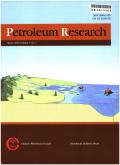A review on oilfield produced water and its treatment technologies
IF 4
Q1 Earth and Planetary Sciences
引用次数: 0
Abstract
Owing to the soaring urge to meet the demand for oil and gas on different frontiers, its exploration all over the world is of paramount importance. Exploration and production of oil calls for handling a huge volume of associated water, produced along with it, referred to as Oilfield Produced Water (OFPW). OFPW is considered a potential threat to the environment due to the presence of toxic constituents such as dissolved and dispersed oil compounds, dissolved formation minerals, production chemical compounds, production solids (formation, corrosion, scale, bacteria, waxes, and asphaltenes), dissolved gases. This review is intended to provide information on OFPW, its constituents, impact, and treatment technologies of OFPW from various oilfields across the world. It presents a meticulous analysis of the scope of reusing OFPW instead of freshwater for various processes such as well drilling and completion, re-injection to the reservoir for pressure maintenance, and water flooding process for secondary recovery of crude oil. The reuse of OFPW can reduce the demand for fresh water and turn the wastewater into useable water resources after proper treatment. The paper provides rigorous information on the importance of developing an eco-friendly treatment process for the proper reuse and management of OFPW.
油田采出水及其处理技术综述
由于急需满足不同领域对石油和天然气的需求,世界各地的石油勘探工作至关重要。石油的勘探和生产需要处理随之产生的大量伴生水,即油田采出水(OFPW)。油田采出水被认为是对环境的潜在威胁,因为其中存在有毒成分,如溶解和分散的石油化合物、溶解的地层矿物、生产化合物、生产固体(地层、腐蚀、水垢、细菌、蜡和沥青质)以及溶解气体。本综述旨在提供有关 OFPW、其成分、影响以及全球各油田 OFPW 处理技术的信息。它详细分析了在钻井和完井、回注储层以保持压力以及原油二次采收的水淹工艺等各种工艺中替代淡水回用 OFPW 的范围。回用 OFPW 可以减少对淡水的需求,并在适当处理后将废水转化为可利用的水资源。本文提供了严谨的信息,说明了开发生态友好型处理工艺对适当回用和管理 OFPW 的重要性。
本文章由计算机程序翻译,如有差异,请以英文原文为准。
求助全文
约1分钟内获得全文
求助全文
来源期刊

Petroleum Research
Earth and Planetary Sciences-Geology
CiteScore
7.10
自引率
0.00%
发文量
90
审稿时长
35 weeks
 求助内容:
求助内容: 应助结果提醒方式:
应助结果提醒方式:


